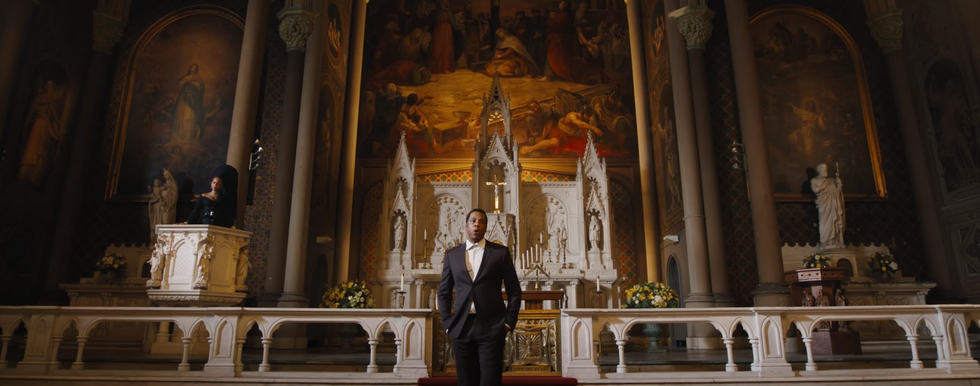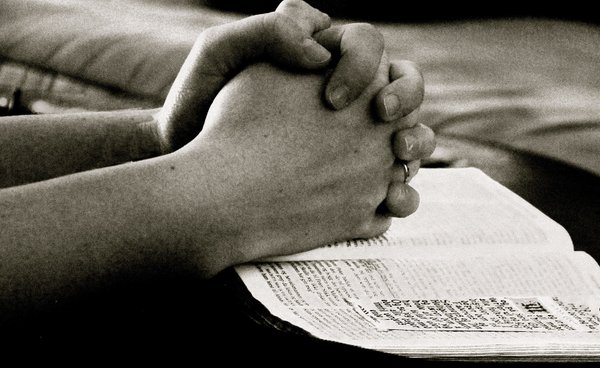“Sometimes I feel discriminated against, but it does not make me angry. It merely astonishes me. How can anyone deny themselves the pleasure of my company? It's beyond me."
— Zora Neale Hurston
Born at a time when a cultural movement such as the Harlem Renaissance started sweeping the Harlem neighborhood of New York City and started defining the lives of the African-American population at the end of the Civil War, James Baldwin through his works explored the intricate labyrinths of racial, sexual and class distinctions in Western societies and their inevitable tensions with personal identity, assumptions, uncertainties, yearning, and questioning.
Characterizing the Harlem Renaissance was an overt racial pride that came to be represented in the idea of the “New Negro,” who through intellect and production of literature, art and music could challenge the pervading racism and stereotypes, to promote progressive or socialist politics, and racial and social integration. The creation of art and literature went on to "uplift" the race.
In the early 1950s, well before the publication of his critically acclaimed novel Another Country which is going to be the main premise of this paper, James Baldwin published a number of essays about the state of what he started calling “his” nation which was emphatically America and “his self” an American self. His voice, so stylish, insisted that the language-English-in all its nuance and subtlety belonged to him, just as America in all its cruelty and hatred belonged to him.
It was this America of his that was explored, ridiculed and loved through the characters of his novel Another Country during the post-Harlem Renaissance period in America.
Rufus, the protagonist of the story is Baldwin’s Hamlet, is a tragic hero caught between the time when men such as him had no possibility of freedom and the time to come. The city has opened its doors to him, not enough for him to feel free, but just enough for him to feel threat and danger. This offers an astonishing edge and intensity to the pleasure he takes in his own speech, the music, the night, like someone who has been briefly released from solitary confinement. The aura around Rufus is that of rage which is so brilliantly executed by Baldwin that it prevents him from portraying an otherwise lovable character as a public martyr.
Rufus, to Baldwin, is a representation of the Negroes, or as he would say the “niggers,” living in America with an anguish of varying degrees and varying effects in the 1960s: simple, naked and unanswerable hatred with the raging feeling of wanting to smash any white face he may encounter in a day. Rufus’ tumultuous relationship with the white Leona that ultimately leads her to a mental asylum is a depiction of the deep-rooted desire to violate, out of motives of the cruelest vengeance, “their” women. All the while believing it to be love, not knowing the power of their sub-conscience to destroy. To break the bodies of all white people and bring them low, as low as dust into which he himself has been and is being trampled into. But the irony remains that even after exercising these feelings of rage and revenge, trying to get back in the best manner he knew how, it ultimately led him to take his own life-something he realized he never had in the first place- by committing suicide. Cause as Baldwin rightly pointed out, no Negro who has not had to make his own precarious adjustment to the “nigger" who surrounds him and to the “nigger” in himself can survive America.
Baldwin later began to muse about how little essential difference there was between the races in the United States, and this idea: that the “white” characters in his book suffer too, and are confused, and that their suffering and confusion mirrors the suffering and confusion of Rufus as seen through the portrayal of Rufus’ closest friend Vivaldo, the white struggling novelist, who is the mirror image of Rufus.
Vivaldo, his successful mentor, Richard, and his wife, Cass, embody this revelation that Baldwin has about the “other” and writing from a stand of understanding their inner demons and getting their afflictions. He writes: “I thought that the white world was very different from the world I was moving out of and I turned out to be entirely wrong. It seemed different. The white people seemed safer, cleaner and more polite and of course it seemed much richer from the material point of view. But I didn’t meet anyone in that world who didn’t suffer from the same affliction that all the people I fled from suffered from and that was that they didn’t know who they were. They wanted to be someone that they were not.”
It is this revelation that led James Baldwin to the conclusion that essentially the blacks and the whites of the 60s are the same. The fact that “their” world seemed all the more superior to theirs no longer angered him as he got to see that the whites were just as vulnerable and scared as them (his race), as they all fight to find their place in the world. It is this justice system that ultimately soothes Baldwin to release the decades of pent-up anger and rage.
Although Rufus is the protagonist of the story, Baldwin kills him in less than 80 pages and lets its aftermath run the course of the story as its effects on each of the characters are explored and in some cases, it can be said that Pandora’s box has been opened. The waves of his death reverberated through the actions of many of the characters that goes on to define the plot while a lot can be said simultaneously about the general tenor of the time.
The journey of Ida (Rufus’ sister) and Vivaldo’s relationship is an example of this, as this character makes her readers feel the blow of her brother’s death in every relationship that she has. She tries to make everybody pay for it, not realizing that she’s destroying herself in the process. It is not just the death of Rufus that is a black mark in the lives of these characters but Baldwin explores the many dark journeys of life through the length of the plot. Thus, while the first part of Another Country deals with the erotics of race and its discontents, the novel after the death of Rufus allows Baldwin to deal with the dark confines and conflicts of gender and sexuality by which all his characters are disturbed. This dilemma worsened only because of the colour of his skin and his own homosexuality, he grew fascinated not only by the drama of black versus white in his country, but also by the drama of masculinity and more importantly by the American ideal of masculinity and sexuality. This is dealt with in the book wherein he portrays the concept of the American Masculinity as a nightmare from which his characters cannot awake. The city is hence a prison-house of desires, which cannot be fulfilled. Yet Baldwin takes pride in calling himself an American because he realizes the nature of this masculinity when he wrote: “They want you to feel like you’re not a man, maybe that’s the only way they can feel like men.” Showing this Masculinity to be a bully trying to gain an upper hand by knocking others down which is pathetic in its own way.
Pitched between longing and contempt, locked inside an icy masculinity, the second part of the novel dramatizes Vivaldo’s efforts of escape from this. The key moment in his slow and uneasy redemption occurs in the scene where he has been watching a blonde woman at the bar and it hits him that: in a region where there were no definitions of any kind, neither of colour nor of male or female, there was only the leap and the terror and the surrender.
Baldwin’s works revolves around two very powerful ideas being pitted against each other. One the one hand he suggests that America is seriously deformed as a society because it cannot accept a large minority of its population and therefore cannot accept itself. By this treatment of the black population, it has managed to disable itself. And on the other hand, as a critic, he suggests that life itself is dark, that relationships are fraught and broken and personalities are destructive because of the way we are made. Both of which have been explored by Jay-Z in his Family Feud. Thus, Baldwin’s novels combine a criticism of life that is essentially political with one that is philosophical. And since he is interested in his characters trapped in life, rather than life itself as a mere idea, the novels take on a dark, dramatic and engrossing power as does the song in sending a message of public apology and forgiveness.
In Another Country, Baldwin’s sheer genius brought out the essential American drama of the century in which characters desperately seek to escape from the parody of themselves, which has been constructed for them, to move towards a region where there were no definitions of any kind and failing to do so moved towards self-destruction.





 people sitting on chair in front of computer
people sitting on chair in front of computer



 all stars lol GIF by Lifetime
all stars lol GIF by Lifetime two women talking while looking at laptop computerPhoto by
two women talking while looking at laptop computerPhoto by  shallow focus photography of two boys doing wacky facesPhoto by
shallow focus photography of two boys doing wacky facesPhoto by  happy birthday balloons with happy birthday textPhoto by
happy birthday balloons with happy birthday textPhoto by  itty-bitty living space." | The Genie shows Aladdin how… | Flickr
itty-bitty living space." | The Genie shows Aladdin how… | Flickr shallow focus photography of dog and catPhoto by
shallow focus photography of dog and catPhoto by  yellow Volkswagen van on roadPhoto by
yellow Volkswagen van on roadPhoto by  orange i have a crush on you neon light signagePhoto by
orange i have a crush on you neon light signagePhoto by  5 Tattoos Artist That Will Make You Want A Tattoo
5 Tattoos Artist That Will Make You Want A Tattoo woman biting pencil while sitting on chair in front of computer during daytimePhoto by
woman biting pencil while sitting on chair in front of computer during daytimePhoto by  a scrabbled wooden block spelling the word prizePhoto by
a scrabbled wooden block spelling the word prizePhoto by 
 StableDiffusion
StableDiffusion
 StableDiffusion
StableDiffusion
 StableDiffusion
StableDiffusion

 women sitting on rock near body of waterPhoto by
women sitting on rock near body of waterPhoto by 
 Photo by
Photo by  Photo by
Photo by  Photo by
Photo by  Photo by
Photo by  Photo by
Photo by  Photo by
Photo by  Photo by
Photo by  Photo by
Photo by  Photo by
Photo by  Photo by
Photo by 








